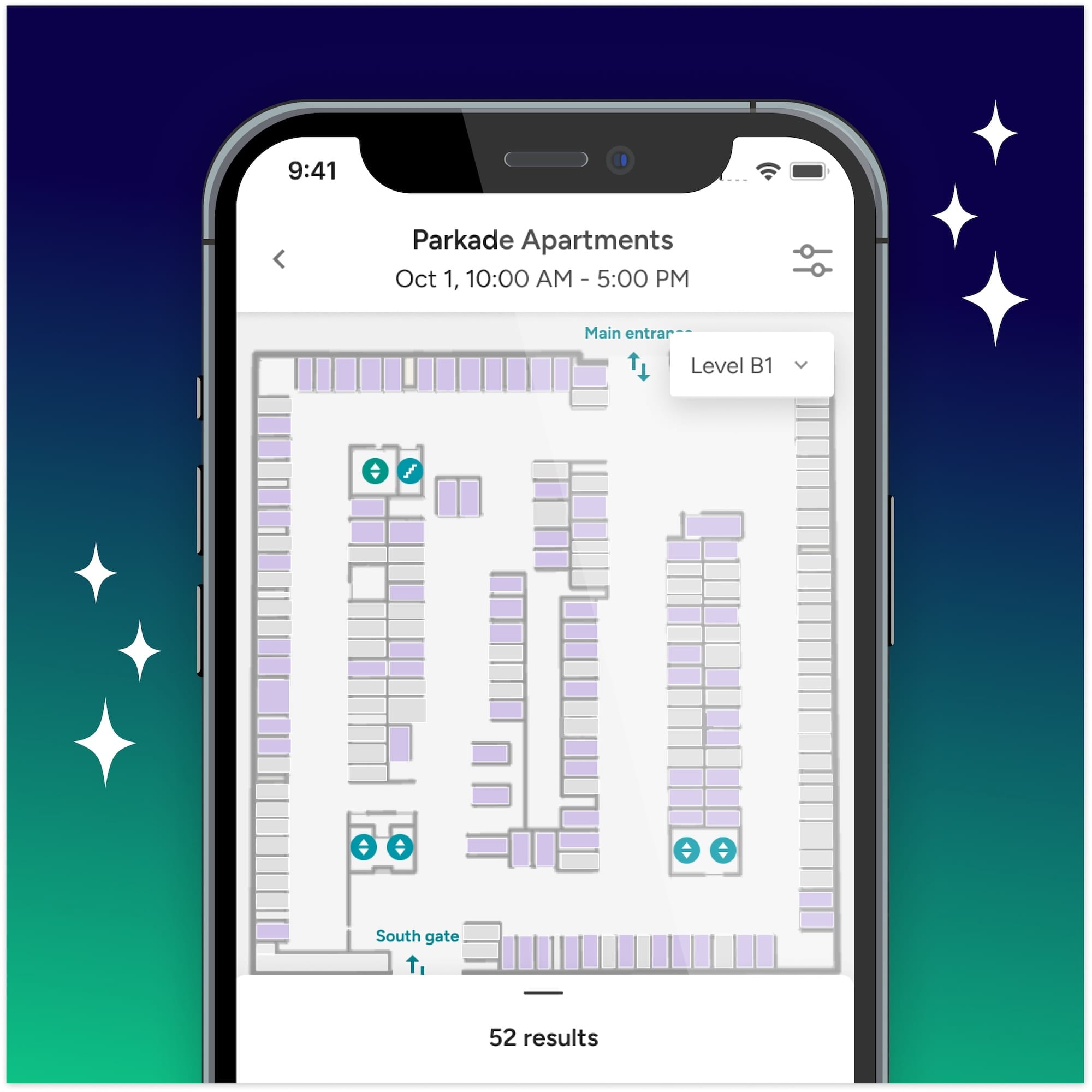

TABLE OF CONTENTS
Ever wonder why some apartment complexes just feel better to live in than others? A lot of it comes down to something surprisingly simple: good communication.
When you have a clear and consistent line of communication open between your team and your residents, you’re able to craft a more positive overall resident experience, leading to higher satisfaction and retention.
On the flip side of the benefits of great communication is the risks introduced by bad communication. While 65% of residents in a recent report said that they were satisfied with communication with their property management, almost 20% mentioned that they were either not satisfied or “very dissatisfied.”
A break in communication can lead to an erosion of trust. And that negative sentiment can trickle into your reviews.
One resident at a Columbus, Ohio property said in a Google review:
“We also had extreme difficulty getting ahold of management, particularly when it came time for us to move out. No one was ever at the front desk and we couldn’t even reach anyone via phone… Overall, we didn’t appreciate the lack of communication between management and residents”
Reviews like this are not uncommon, and in fact poor communication is one of the most common complaints in resident reviews.
So… how do you make sure you’re getting resident communication right?
Let’s start by addressing where it can go wrong.
If you have a small property with just a handful of units, communication can be pretty simple. But once you introduce hundreds or even thousands of residents into the mix, the same strategies won’t be effective. You have to consider ways to scale your communication so that every resident feels in the loop.
Communities at apartment complexes, when compared to the population of home owners, are much more diverse on average. This means that your community is likely home to a broad range of renters, including different ages, cultural backgrounds, and languages. This diversity can make it challenging to find a one-size-fits-all communication approach.
There may be a range of preferences for and comfort with communication channels — either traditional methods like notices and letters or digital communication like email, SMS, social media, and apps — as well as frequency and tone.
Property managers often struggle to find the balance between communicating too much with residents and not communicating enough. It can be hard to determine how to ensure that your guests receive enough information to remain fully in the loop, without feeling overwhelmed.
Communication should be a two-way street, but this adds an extra layer of complication to resident communication. As necessary as it is to establish an effective and efficient feedback loop where you’re able to pull in and respond to resident comments, it can be tricky.
Whether it’s because residents don’t feel comfortable providing feedback, or there is no established process for them to do so, this breakdown in communication can lead to missed opportunities for improvement and a rift in your relationships with residents.
You can’t rest the fate of your resident communication on one really great communicator on your team. Being able to train these communication skills and protocols into your team members can be tricky, especially with high turnover rates in the multi-family industry — it sat at 33% last year.
Without this training, inconsistencies in communication from staff can lead to confusion and dissatisfaction among residents.
Clearly, resident communication isn’t easy. But that doesn’t mean that it’s impossible to get it right. All it takes is an investment by your team to address challenges head-on and keep resident needs at the forefront of your strategy.
You can sit in a room with your team and create what you perceive as the perfect communication strategy but you need to hold it up to the way that your residents are most likely to interact to validate it.
In order to understand which modes and cadences of communication are going to jive with your residents, survey them. This could be something you send out on a bi-annual basis, and perhaps you could build the survey into the application or move-in process.
But don’t just collect this feedback and let it gather dust. Create a reliable system to track and act on these preferences. Leverage the information to create clear communication protocols about who you contact and when.
This could be as simple as identifying the most broadly preferred communication method/consistency and leaning into that, or for larger communities with a broader range of preferences, you could even separate residents into different lists based on their preferred communication style. While there may be some messages that have to be uniformly distributed, you could deliver routine updates to some via text, some via email, and some via a paper notice.
Tech is becoming an increasingly critical role in the multi-family industry, and adoption is on the rise. You can leverage technology to improve your resident communication.
There’s an increasing portion of the population that is highly tech-savvy. In fact, 79% of renters think they should be able to get everything they need, communication-wise, through digital channels like text, chat, or push notifications.
Bringing the right technology on board can not only help you align to the preferences and expectations of this group, but it can also help to automate some of the most tedious communication tasks, saving your staff time.
The key here is to integrate technology that is specifically built for certain communication purposes. For example:
For some technology that residents aren’t already using, it may be worth sending out a short training guide sheet or video to help them make the best use out of it.
Times of crisis bring on the most pressing need for good communication, but often this is the time when your processes are most likely to break down in the chaos of the event. Whether it’s power/water outages, natural disasters, fires, or security threats, you want to make sure you have a reliable and effective resident communication plan in place for these critical moments.
Often, management leaves communication up to legal or risk management, but this can be a mistake since they’re often not taking into consideration the emotional elements at play. It’s important to come together as a whole team, both resident-facing and not, to strategize ahead of time.
It’s wise to prepare scripts and protocols ahead of time. For example, here’s a potential plan for when a hurricane strikes in a coastal community:
To make this critical communication more streamlined, consider pre-programming some message templates ahead of time so that it’s easy to schedule them out when crisis strikes.
In times of crisis, transparency is the priority, and it’s crucial to building trust and giving your residents peace of mind. Even when you’re delivering bad news, residents would prefer to know rather than being in the dark, and they’ll appreciate timely updates in moments where so much else is uncertain.
As we said, the breakdown of the feedback loop can be a major barrier to great resident communication. So you should not only create a vehicle to request/collect this feedback on your communication — whether it’s via a physical dropbox, email, an anonymous form, or regularly scheduled surveys — but you should also encourage and even incentivize it.
Make sure that collecting this feedback isn’t merely a formality. Schedule time to carefully review the data you’ve collected, identifying themes, and strategizing ways that you can improve your resident communication processes.
.jpg)
As parking management becomes increasingly digital, security becomes critical — and we’re excited to share that we've achieved a major security milestone.
Read Story
We’re thrilled to announce one of our most significant leaps forward this year: the launch of dynamic maps across our mobile and web applications.
Read Story
Now that AB 1317 is official, it’s time to brush up on the requirements and see how your properties stand to benefit.
Read Story